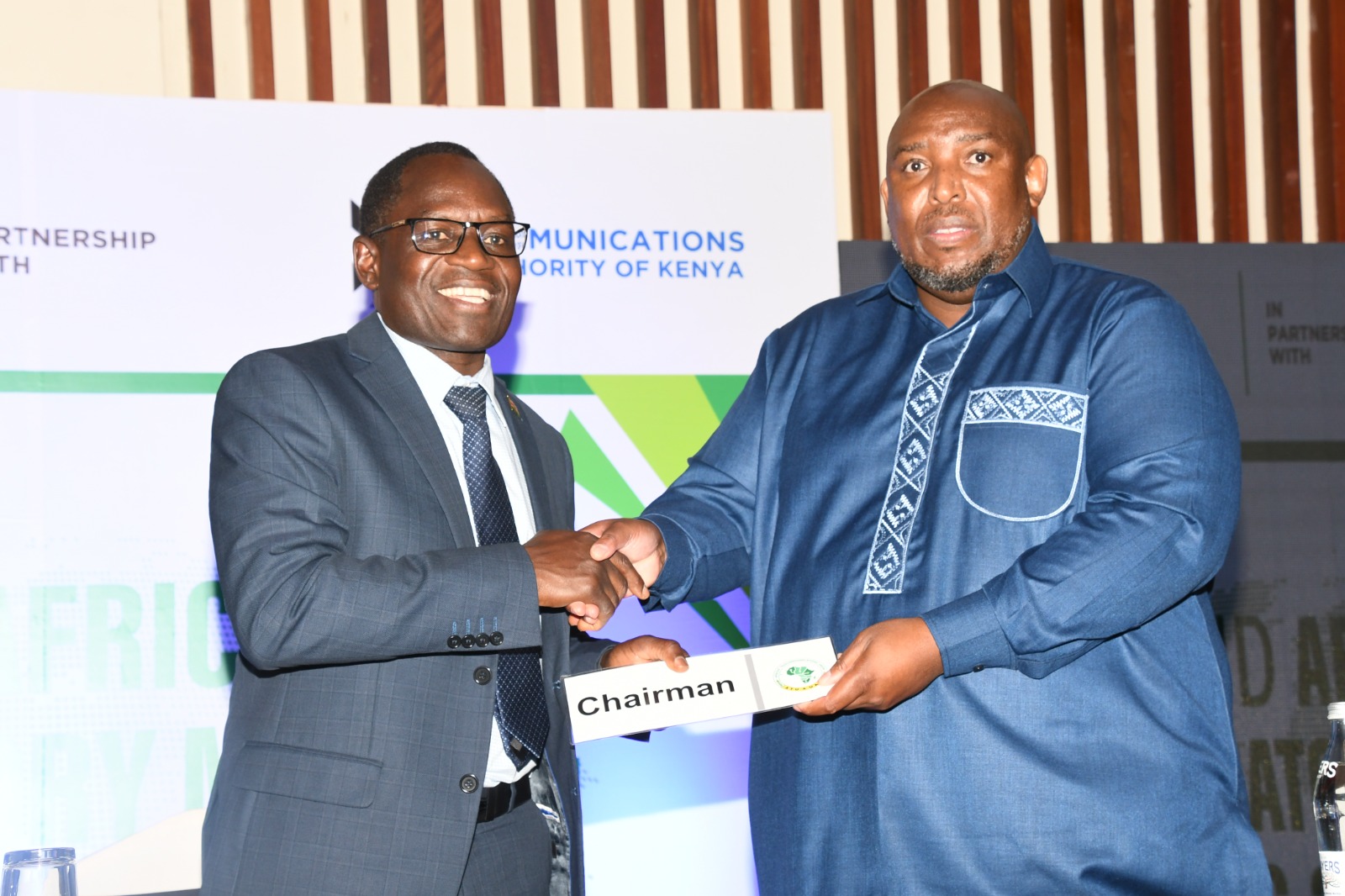

Broadcasting and Telecommunications PS Stephen Isaboke has officially assumed the chairmanship of the African Preparatory Process for the World Radiocommunication Conference 2027 (WRC-27).
He took over from Kanono Ramashamole, Principal Secretary for ICT of the Kingdom of Lesotho, during the 2nd African Preparatory Meeting (APM27-2) in Nairobi.
Isaboke will serve as chair throughout the WRC-27 study cycle, leading Africa’s strategic and technical coordination.
His role includes steering discussions, harmonising regional positions and advocating for Africa’s interests in the global spectrum and satellite orbit negotiations.
Speaking during the handover, PS Isaboke said: “Today, we advance the progress initiated during APM27-1. We assess our gains, consolidate common positions and chart a unified way forward—together.”
Key focus areas for APM27-2 will include strengthening Africa’s position for WRC-27, ensuring the continent is well-prepared to influence decisions that impact global spectrum and satellite orbit allocation, critical resources for broadcasting, telecommunications, and economic development.
It will also focus on prioritising the protection and acquisition of high-value spectrum bands and orbital slots—both geostationary and non-geostationary—to expand broadband, support remote services and drive digital inclusion by exploring the potential of D2D technologies that enable satellites to connect directly to mobile phones.
The Nairobi meeting reflected on Africa’s performance in WRC-23, identifying lessons learned and refining strategies for the upcoming conference.
Another key focus area is addressing Africa-Specific Spectrum issues, including efficient spectrum refarming, harmonisation of mobile broadband bands, for 5G and future 6G, expansion of satellite broadband and broadcasting services and protection of critical services tied to national security and socio-economic resilience.
Spectrum is essential for cloud computing, AI, data sharing and the Internet of Things (IoT). It enables fast, reliable connections that let devices, sensors and systems send and receive data.
APM27-2 is a crucial platform for African nations to deliberate, align and assert their collective voice in shaping the future of global radiocommunication.
The outgoing Bureau has been instrumental in strengthening Africa’s position in spectrum management, emerging technologies and the wider telecommunications space.
Achievements since APM27-1 include the first-ever IMT Spectrum Roadmap for Africa, enabling harmonised planning and maximising economies of scale, the launch of AfriSAP Online, a modern digital platform for spectrum allocation management and groundbreaking reports on Direct-to-Device satellite technology and developments in the satellite sector, ensuring Africa remains aligned with global trends.
It also helped strengthen partnerships including hosting the
largest Regional Radiocommunications Seminar in history and tangible progress in skills
development, training initiatives, 5G capacity building through agreements with
industry leaders like Nokia, and preparatory work on IoT spectrum aspects,
amateur radio promotion and feasibility studies for an African N-GSO network.
“These milestones are the result of collaboration. To member states, thank you for your contributions, technical expertise and the spirit of unity that has guided our work,” Ramashamole said during the handover ceremony.
“As I pass the baton to the incoming Chair, I do so with optimism. We have laid a strong foundation, but the road to APM27-2 will require focus, innovation and determination to ensure that Africa’s spectrum and satellite ambitions translate into tangible benefits for our people—from affordable connectivity to inclusive digital transformation.”
He expressed confidence that under the “capable” leadership of PS Isaboke, the new bureau, with “steadfast support of all”, APM27-2 will deliver even greater outcomes.











